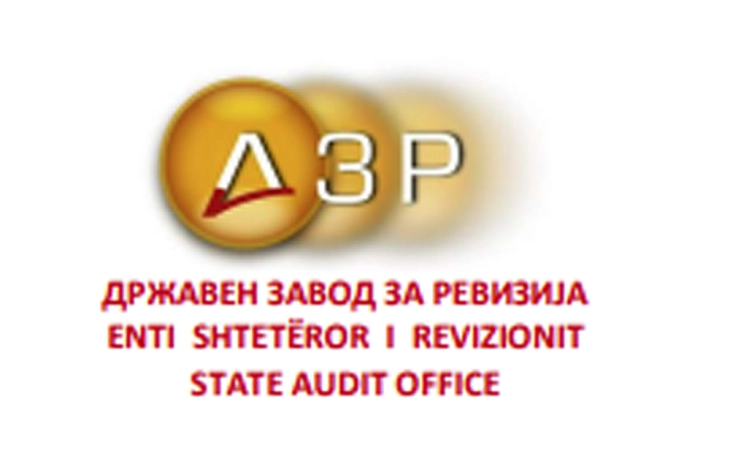State Audit Office: Budget revenues lower by around EUR 23 million as a result of measures to support employment and professions hit by Covid crisis

Skopje, 10 August 2022 (MIA) – The State Audit Office (SAO) published online the final audit report on “Measures and Policies Taken to Support Employment and Professions Affected by the Health and Economic Crisis Caused by Covid-19”, which concluded that as a result of the measures, the Budget’s revenue decreased by EUR 23 million.
“The goal of the revision is to answer whether the measures were efficiently created, realized, controlled, monitored and whether adequate reporting is provided on the effects of the measures. With this audit we covered 36 percent of the total planned funds for 2020 and 2021 through the Government programme for Covid-19 aid, which amounts to EUR 205 million out of which around EUR 186 million have been used. The audit period was from March 11, 2020 until January 31, 2022, although certain areas, questions and events were covered subsequently until the day of the completion of the audit,” said the State Audit Office.
The audit activities, they said, were focused on the following areas: legal framework and creation of the measures and policies to support employment and professions affected by the Covid crisis; procedures for granting and implementing of the measures; as well as control mechanisms, monitoring and assessment of the achieved results.
“The audit provides reasonable assurance that the creation of the measures was done in the absence of strategic planning with clearly defined objectives and performance indicators. The audit concluded that the country’s institutions lack the complete data on the returned financial support per beneficiary within the established deadlines and amounts in the Budget. According to the analysis of the audit, the employers and the natural persons who are beneficiaries of the measures subsidizing contributions and salaries, returned only 29 percent of the total calculated amount, as a result of which EUR 16 million less were returned to the Budget. In addition, since there is no way to control and retrieve the granted funds there is a risk that the legal subjects which do not fulfill the conditions will not return the funds to the Budget, which amounts to EUR 7.2 million. These conditions cause the budget revenue to drop by around EUR 23 million,” said the SAO.
The SAO reminded that the Covid-19 crisis caused loss of employment and large losses of workers’ income, which resulted in the decline of consumption of goods and services.
“According to the data from the Employment Service Agency, since the beginning of the pandemic until the end of 2020, around 17,022 workers have lost their jobs. The lack of written analysis and estimates during the creation of the support measures, the identified weaknesses in the decrees and the adopted laws which regulate the conditions, method and procedure for granting aid affect the implementation of the measures and the preservation of the jobs,” said the SAO.
It adds that the incomplete data on the number of employers who have or have not fulfilled their obligation to return the financial support within the established deadlines, results in lower Budget revenue.
After the implementation of measures subsidizing wages, they said, the Public Revenue Office has determined that a number of employers – beneficiaries of this measure, have not paid their employees.
“The number of employers who have not paid salaries until January 2022 is 135, for a total of 435 employees amounting to used financial support of around EUR 102,000, which indicates misuse of the granted support. The untimeliness and the small scope of the conducted field inspections of 0.53 percent of the total granted financial support, the method of selecting which employers to inspect, as well as the insufficient staffing of the institutions, create the risk that a part of the employers used the financial support funds without fulfilling the conditions stipulated by the decrees and the laws,” the SAO said.
According to them, the identified shortcomings and the effects of the support measures show that it is necessary to improve the efficiency of the competent institutions when it comes to planning and implementing future measures aimed at preserving jobs and reducing the economic consequences of the pandemic.
They recommend that a legal regulation of the state of emergency and the adoption of strategic documents to deal with the consequences of a pandemic are necessary; planning and implementing measures should be based on analyses and defined indicators measuring the success of the measures; establishing a comprehensive and complete record of the approved and paid financial support and a harmonized approach informing on their implementation; keeping records of returned financial support by beneficiaries and measures, greater scope of inspections among the beneficiaries and measurement of the effects of the implemented measures.
To deal with the consequences of the Covid-19 crisis, the Government adopted six sets of economic measures in the period from March 19, 2020 until April 20, 2021. The audit covers the planning and implementation of the six packages in the field of: subsidizing contributions for mandatory social insurance, financial support for employers for the payment of salaries, financial support for natural persons who are self-employed, monetary compensation of those who lost their jobs from March 11 until April 30, 2020, as well as financial support for athletes, independent artists and cultural workers. ad/nn/







